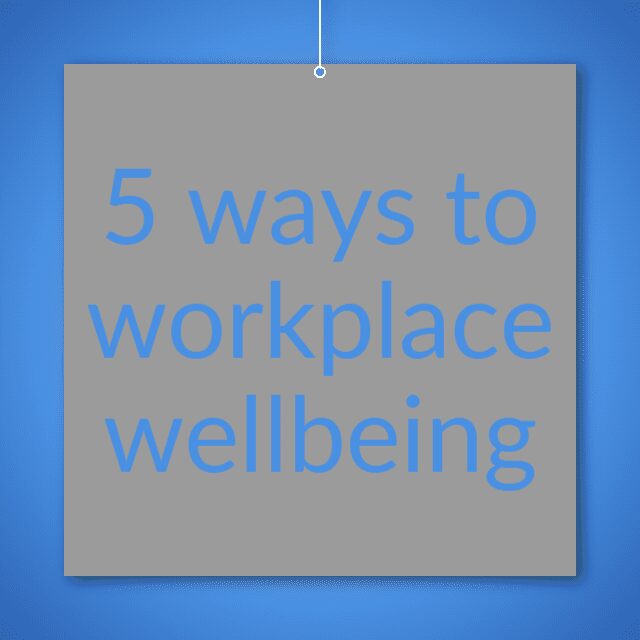Stress in the workplace has always been an issue, however, after the disruption of the past few years, it is something that is being seen more and more. It’s something that we’ve learnt to accept as an unpleasant part of life, and in most cases, something that we “have to get on with”.
Yet what can employers do to protect both their staff and themselves from stress?
At People Matters HR, a leading North West HR Consultancy, promoting positive mental health and wellbeing in the workplace has always been right at the top of our agenda – and we know that this can have a direct impact on stress levels within a business. All of our client have access to Able Futures, which delivers the access to work mental health support service on behalf of The Department for Work and Pensions.
Able Futures uses the “wellbeing wheel” to provide businesses with 5 key areas to focus on for wellbeing in the workplace – Connect, Give, Notice, Be Active and Learn. The PMHR team have taken each of these elements and in our latest blog, given practical examples of where businesses can utilise these areas to promote great wellbeing and reduced stress in the workplace.
Connect
“I’m here if you want a chat.”
“I’m always at the end of the phone.”
How many times have you said this to a colleague who is going through a tough time? The sentiment is there – but often it’s just not enough. Arrange the time to take the person for a coffee and let them just talk, while you listen. And we mean really listen. Don’t interrupt. Don’t agree or disagree. Don’t second guess what they are about to say and absolutely don’t relate it to your own experiences. See if you can listen for 5 minutes without saying a word. You’ll be astounded at the positive effect for both parties.
Give
When was the last time you made an effort to thank one of your team for a job well done? We don’t mean a perfunctory “thanks, see you tomorrow” at the end of the day. Anyone can do that. We mean a proper thank you. Depending on company culture, this could take lots of different forms. For example
- A personal thank you in a team meeting
- A well written, personalised email – focus on the specifics contribution that each team member made to demonstrate how you have really noticed their efforts
- Go public – a shout out on your company social media, website or newsletter will go a long way
- A reward – this should be tailored to the individual and could be a voucher, an extra days holiday or tickets to see a gig they would love.
Notice
There are typically two ways people try to deal with workplace stress. One is to “buckle down and power through” – placing an emphasis and urgency on getting the stressful work done and out of way. Employees, particular those in senior roles, are pre-conditioned for action, problem solving and ticking off the to do list, despite feeling tired and overwhelmed,
Another common tactic is to retreat – more commonly known as the “ostrich approach” of sticking one’s head in the sand and hoping it will all go away.
Neither of these ways are particularly effective, as in both cases the person is failing to NOTICE what is actually going on inside them. Employees who are encouraged to regularly check in with themselves and provided with tools to help them navigate difficult periods are far more likely to cope when the pressure is on. It’s also the role of the employer to notice staff who are under undue pressure – and take action before their stress becomes unmanageable.
Be active
In many office environments, it’s become company culture to be metaphorically chained to the desk. Yet research shows time and time again that physical activity during the working day reduces stress, enhances mood and morale, and massively improves productivity.
If you are lucky enough to have some outside space, encourage the team to get outside during the day. A brisk walk or even a quick sandwich in the fresh air will pay dividends. If you are based in a business centre with an onsite gym, consider allowing staff an extended lunch break to make use of the facilities. If not, how about buying staff corporate memberships for a local gym? Another idea is to combine some charity fundraising with a physical challenge – from a sponsored walk to a marathon, it’s great for team building and getting employees active.
Learn
Keeping the mind busy and active is a great way to deal with stress. According to the NHS website: “Setting yourself goals and challenges, whether at work or outside, helps build confidence and will help you deal with stress. By continuing to learn, you become more emotionally resilient as a person”
Business owners can help employees by offering regular training sessions to keep them at the top of their game in their current role. It’s also proven to be beneficial for employees to learn elements of other roles within the organisation. Not only does it keep the cogs turning, it helps them to connect with and appreciate the contributions that others make within the business.
For some quick lunchtime learning, get staff in to the habit of watching motivational TED talks.
